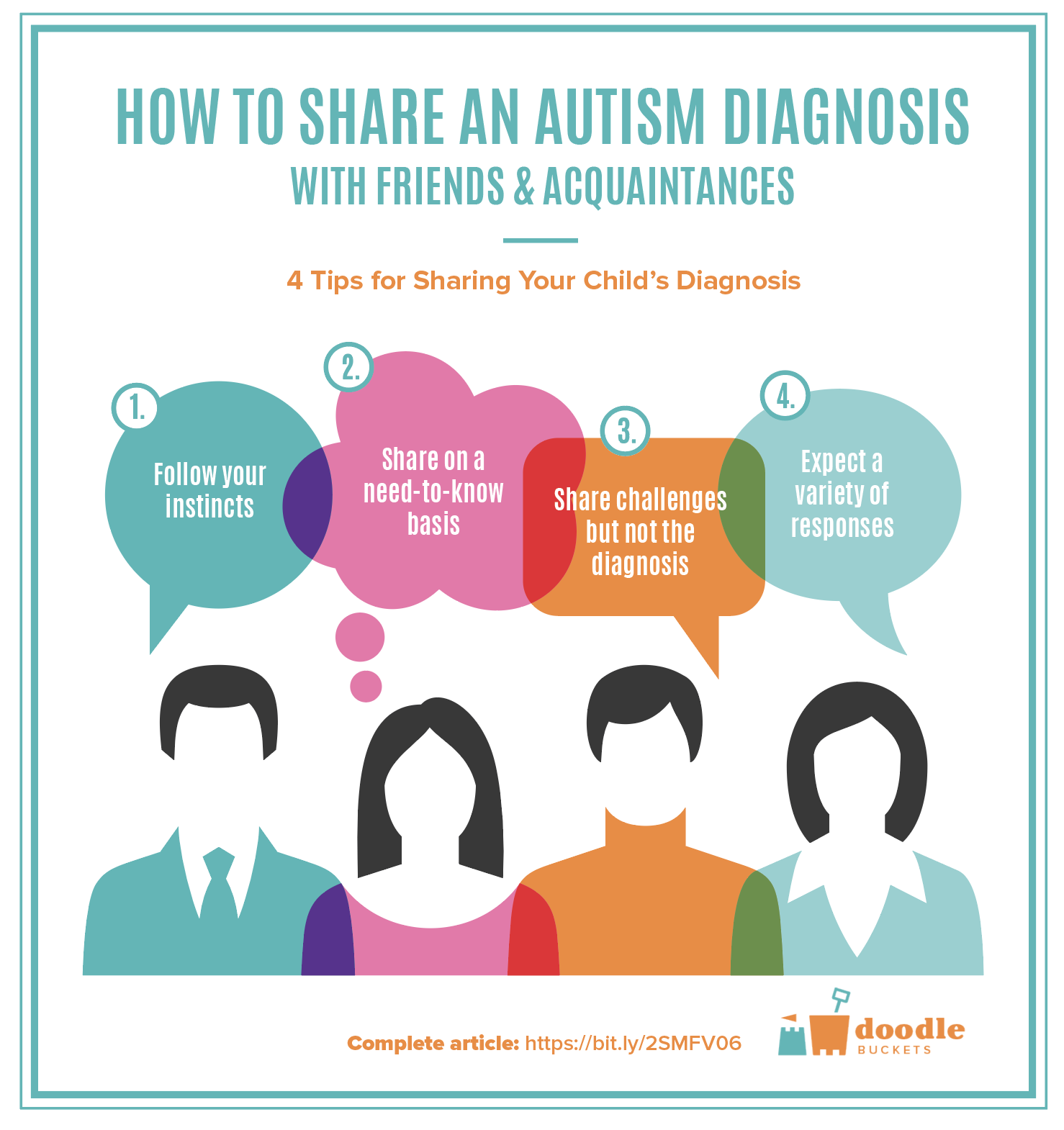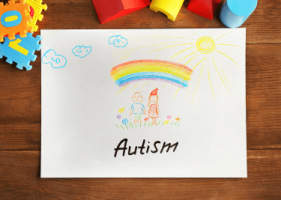When it comes to sharing an autism diagnosis with family members, the biggest question is usually how and when. For most people, it’s a given that their family needs to know about the diagnosis.
Close family members may have a unique relationship with your child. They are in contact with your child frequently enough that they need to be given this information. But it can be a different story when it comes to friends and acquaintances.
You will regularly come in contact with friends, co-workers, neighbors, and acquaintances. They may not see your child regularly but you like them and have a relationship with them. So naturally, you may wonder whether it’s appropriate to share your child’s diagnosis with them.
How do you know who to share the news of the diagnosis with? And how do you know if someone is even ready to have that discussion? These are questions many parents wrestle with and it’s a subject we’ll try to shed some light on in this article.
4 Tips for Sharing Your Child’s Diagnosis

Autism awareness has grown greatly over the years and many parents have chosen to talk openly about their child’s diagnosis. But that doesn’t mean this is the path you’ll feel comfortable taking.
Autism affects everyone a little bit differently. If your child is severely affected, you may feel like the signs and symptoms of autism are so obvious that even strangers can pick up on it. But for children who are high-functioning, it may not be immediately apparent that they have autism.
There is no single “right way” to disclose an autism diagnosis. But here are four tips that might help you discover what’s best for your situation.
[Related Article: Good Autism Toys]
Follow your instincts
Sharing your child’s autism diagnosis is a personal decision and you have to do what you feel comfortable with. Do your best to feel people out first and always go with your gut.
Is this someone who can be trusted and has your child’s best interests in mind? Is this someone who will be supportive and keep their opinions to themselves?
If you suspect the answer is no, then it may be best to keep the diagnosis to yourself.
Share on a need-to-know basis
It might be a good idea to share the diagnosis on an as-needed basis. Your child’s autism diagnosis isn’t going to be relevant to everyone you meet.
For instance, your co-workers and the cashier at Target are probably not going to be affected by your child’s autism. However, a trusted babysitter, preschool teacher, or close friend could be affected by this information.
The point is, don’t feel like anyone “deserves” to know about the diagnosis. You have a right to keep private family information to yourself and only tell a few select people.
Share challenges but not the diagnosis
Let’s say your child is a high-functioning fifth grader and you are very selective about who you share the diagnosis with. They start playing basketball and you’re unsure of whether or not to tell their coach they have autism.
It might be helpful to share their challenges without revealing the actual diagnosis. For instance, you could share that they have a very hard time with loud noises and may respond negatively to the buzzer during games.
This allows the coach to anticipate possible challenges so they can respond appropriately without you disclosing all the details.
Expect a variety of responses
If you choose to share your child’s diagnosis openly, you should expect a mixed bag of responses. After all, many good things can come out of sharing about the diagnosis.
Adults and peers who regularly interact with your child will have a better understanding of your child and how to help them. You’ll likely find that most people are supportive and want to help you.
But anytime you share anything personal, you should expect a variety of reactions. You may share the diagnosis with someone only to regret it later due to their disappointing response.
Friends might make insensitive or judgmental comments. And some people may choose to distance themselves from you after learning about the diagnosis.
Try not to take it personally. As always, remember that other people’s reactions are about them, not about you.
Conclusion
As nerve-wracking as disclosing an autism diagnosis can be, a lot of good can come out of it. It brings greater awareness to autism and can help eliminate stereotypes.
But your first priority is always your child so you should only disclose this information if you think it’s in their best interest. Here are a few questions to consider before disclosing the diagnosis to non-family members:
- Am I comfortable telling this person?
- Is this person even open to having this discussion?
- How does sharing the diagnosis in this situation benefit my child?
- What are the potential downsides or consequences?
- What am I expecting as a result?



